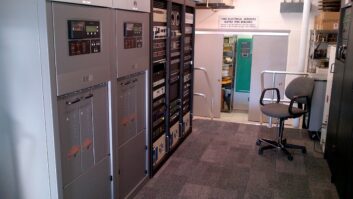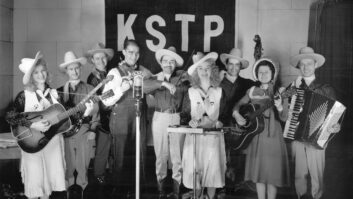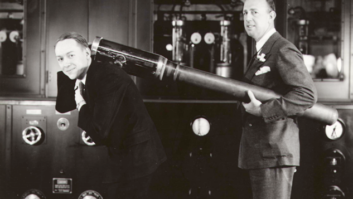The FCC Media Bureau found that a Louisiana licensee could be liable for a monetary forfeiture of $12,500 after concerns were raised about the truthfulness of statements made during the licensing and construction process.
In 2019, the bureau granted Crocodile Broadcast Corp’s application to license a new FM translator station in Norco, La. (which has since changed to Baton Rouge). After the grant of the license, a petition was filed by a third party asking the bureau to reconsider its grant of the application. The bureau ultimately dismissed that petition because it was late-filed, but even so, certain issues were brought to the bureau’s attention involving the truthfulness of the licensee’s statements.
The bureau found that Crocodile may have violated commission rules in several ways: by allegedly failing to file a required form to obtain consent to change antennas, by building and operating with an unauthorized antenna for approximately two months and by allegedly falsely certifying that the construction was authorized.
It was back in 2018 that Crocodile, licensee of AM station KGLA, applied for a permit to construct an new FM translator as part of the FCC’s AM Revitalization efforts. At the time, Crocodile proposed using a directional antenna mounted at 150 meters above ground level. The grant of the license application was released via a public notice in September 2019, and soon after Crocodile certified that it had constructed the facility as authorized with the aforementioned directional antenna.
But a petition was soon filed by Radio & Investments Inc. (R&I) alleging that information in Crocodile’s license application was false. Specifically R&I said that Crocodile was using an unauthorized omnidirectional antenna that had been mounted 5 meters lower than authorized. R&I said the bureau should reverse the grant of the license application because the constructed facilities would result in prohibited contour overlap and because the unauthorized changes called into question Crocodile’s basic character qualifications.
In response, Crocodile acknowledged that it used an omnidirectional antenna temporarily for about two months after the authorized directional antenna arrived in a damaged condition. Crocodile was eager to begin operations, the licensee told the bureau, and believed that the repaired antenna would soon be up and running.
[See Our Business and Law Page]
Crocodile said it had no intent to deceive; it simply did not recognize the significance of the antenna substitution and as a result, did not mention it to counsel who prepared the final license application. Crocodile also said it ran into difficulty when it came time to switch antennas because of problems with the tower structure itself, including trouble with mounting brackets, difficulties with the tower’s guy wires and inaccuracies in tower height. In communications with the bureau, Crocodile said its mistakes were unintentional oversights combined with an eagerness to begin operations.
But the bureau reminded the licensee that the FCC relies heavily on the honesty of its licensees. While the bureau did not find any evidence to suggest there was an intent to deceive, Crocodile nonetheless violated FCC Rules surrounding submission of information. “[The licensee] acted negligently by failing to communicate the variations from the translator’s authorization to counsel who prepared the application and then failing to review the application prepared by counsel thoroughly before it was submitted to the commission,” the bureau said.
The bureau upheld the initial grant but also found there was good reason to establish a reporting requirement for future applications by Crocodile. The bureau also issued a Notice of Apparent Liability for a monetary forfeiture in the amount of $12,500.
The next move belongs to Crocodile. The licensee has 30 days to either file a written statement seeking reduction or cancellation of the amount or to pay the proposed forfeiture outright.







